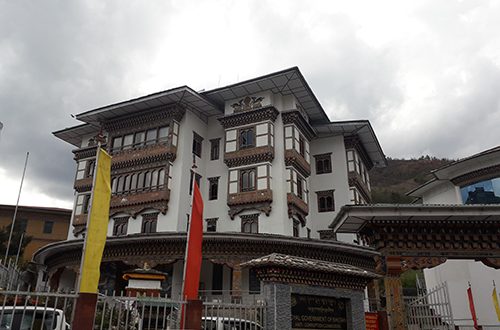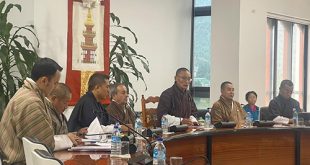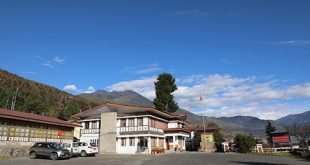With claims and counter claims, a few things will decide whether corruption has occurred in the Economic Stimulus Plan’s (ESP) Nu 3 billion (bn) Concessional Credit loans given at 4 percent.
The only agency that has the legal right and statutory authority to investigate allegations of corruption in Bhutan is the Anti-Corruption Commission (ACC) which also has to secure a court order given the Financial Services Act (FSA).
ACC possesses a range of investigatory powers, such as obtaining documents and financial records. Therefore, ACC has so far taken the entire loan data base of the ESP and also some particular loan files.
The first thing for ACC to check will be to see if the loans are eligible under the respective ESP categories.
The second checklist will be to see if the loan was processed and approved by the Bhutan Development Bank Limited’s (BDBL) ESP team and various committees, including the final approval committee in a transparent and fair manner.
What will have to be looked at here is how other similar proposals were rejected to check if there was no favoritism. For example, if there are two similar proposals with similar conditions, and one gets rejected and the other approved then it could raise eyebrows.
Along with this, ACC will have to see if the BDBL ESP team and committees followed all the proper standard operating procedures and protocols in evaluating and approving loans.
After checking the loan approval process, the next stage will be to look at the disbursal of the money and how it was used.
Here, the BDBL management said that if the supplier is in Bhutan or India then they would deposit the money in the account of the supplier directly and not give it to the client. In the case the purchase is from a private party then a sale deed would be looked at and money transferred to the account of the seller.
However, the BDBL management said that for purchases made from third countries, it does not have the facility to pay the suppliers there directly since convertible currency is involved. In such cases money is given to the loan client and a receipt is taken later to show the money has been sent.
Here, ACC will then have to check for details with the loan clients. The loan clients may have all the necessary bills and paper work, but what the ACC will look for to verify is the bank transactions.
ACC is likely to use an Artificial Intelligence (AI) system to track the payments online to detect anomalies as it will be very cumbersome for humans to do it.
Based on the original complaint submitted to it, ACC is likely to focus more on three cases.
The first is on the case of the Health Minister’s son and his business partner’s Nu 72.7 million (mn) ESP loan for the Low Density Polythene (LDP) pipe manufacturing unit under Norwang Polyfab Private Limited in Jemina.
ACC, apart from the loan approval, will study how the money released so far has been used.
It will also have to examine allegations that the ESP money was used to purchase a building.
Norwang’s CEO has said no paper work has been done, but a relative wants to transfer a five storeys building in Babesa as his equity or capital contribution in return for Lyonpo’s son and partner handing over parts of their shares in the companies to him.
ACC will be expected to look at the transactions on this one.
The second specific case that ACC will look at in more detail will be the that the Prime Minister’s brother’s case.
The PM’s brother, Tshering Wangchuk, got a Nu 81 mn ESP loan sanctioned for an Autoclaved Aerated Concrete factory in Punakha near the NRDCL Depot.
Here, the ACC will not be looking just at the receipts but also the transaction records.
The claim by Tshering that he used some of the Nu 35 mn that has been released to pay two partners who sent money for the machines to China, but later backed out will be examined.
There will likely also be an assessment of the equipment and costs he incurred, so far, apart from just the bills but also in terms of transactions.
The third case that will also be looked into in depth will be the case of Nu 70 mn ESP loan given by Bhutan Insurance Limited to T&K by Bhutan Insurance Limited (BIL). Of the Nu 70 mn around Nu 50 mn has been allocated. ACC will likely check where the allocated amount has been used via bills as well as via transactions.
Similarly, ACC may look at other pertinent cases, if need be, looking at loan allocation and how the money was spent.
BDBL itself is doing an internal review with the Internal Audit looking at the process and guidelines of the ESP loans and a report will be given to the BDBL Board.
Of the Nu 3.012 bn approved ESP amount, the amount disbursed as of 11th September 2025 is Nu 1.709 bn .
BDBL management said the remaining Nu 1.3 bn will be disbursed as usual with checks at the sites and usage of prior funds.
However, for the 3 cases above of the Health Minister’s son, PM’s brother and T&K, further disbursements will not be given until ACC completes its investigation.
This is because the ACC has taken the files of the above cases for detailed investigation. ACC may also pull in other agencies like the RMA to help with the case. Given the sheer numbers of files, the ACC investigation is likely to take time.
There have been public calls for the media to investigate more, but the media does not have the statutory authority, like ACC to get hold of loan account details or seize files, phones and laptops.
Update
Late on friday night the ACC issued a press release on its preliminary findings.
It said that Financial Institutions (FIs) have generally complied with the ESP Guidelines in the appraisal and approval of loans.
Like any other loans under the ESP, the records for the alleged entities, M/S Norwang Polyfab Pvt. Ltd., M/S T&K Concrete Products, and M/S Wangchuk Blocks, indicate that the application and approval processes followed the prescribed criteria, including proper due diligence on financial projections and project viability. The loan issued to M/s Druko Feeds Private Limited was processed as a standard commercial loan, outside the scope of the ESP.
It said that at this stage, the investigation has not found any compelling prima facie evidence indicating abuse of function or preferential treatment toward politically connected parties or businesses.
However, the veracity of underlying documents filed by those applicants which the bank relied upon in sanctioning the loan remains to be verified. Based on its analysis, the ACC is not ruling out possible elements of fraud and deception in diverting the funds for purposes other than those specified in the loan agreements. The ACC said it will have to conduct further investigation into this area in order to substantiate its conclusion.
ACC said the Implementation SoP for ESP (CCL) stipulates that if the bank finds evidence of loan diversion or the borrower fails to commence the project within three months from the date of disbursement, it can freeze further disbursements while compelling the borrower to liquidate or refund the loan through negotiation including court proceedings.
Based on these findings, the ACC noted that ESP stakeholders, including FIs and regulatory agencies, are responsible for ensuring that loan utilization in practice is consistent with approved project deliverables. ACC sahred recommendations for immediate intervention.
The first is that RMA, FIs, and other relevant oversight bodies, strengthen monitoring of loan implementation, including regular field verification, to ensure that approved projects and business initiatives are duly operationalized.
The second recommendation is that government and RMA review the existing guidelines to incorporate robust safeguards against fund diversion at the source of disbursement.
 The Bhutanese Leading the way.
The Bhutanese Leading the way.




